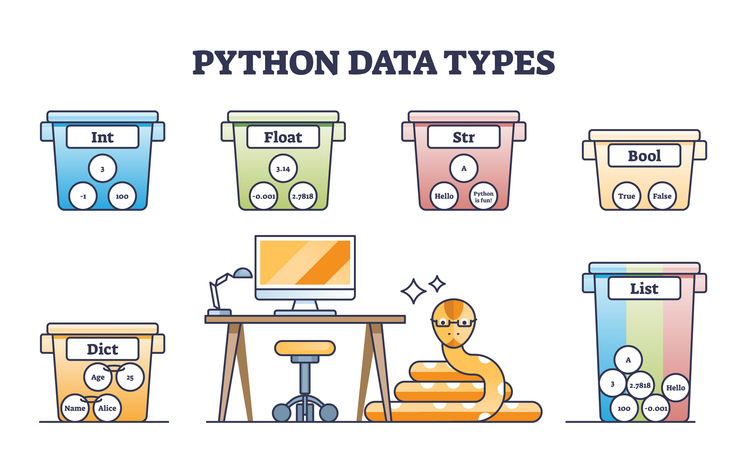7 min read
What Is The Highest Paying Job In Data Analytics?
Uncover the top-paying roles in the field of data analytics and explore the factors that contribute to their high salaries.
3 min read
![]() The Amazing Team at Skills Data Analytics
:
Apr 22, 2024 10:11:19 AM
The Amazing Team at Skills Data Analytics
:
Apr 22, 2024 10:11:19 AM
Discover the significance of data sets and why they are crucial in various industries.
Data sets are collections of structured data that are organized and stored for analysis and interpretation. They are composed of individual data points or observations that are related to each other in some way.
Data sets can be categorized into two types: structured and unstructured. Structured data sets have a predefined format and are organized into rows and columns, making them easy to analyze.
On the other hand, unstructured data sets do not have a predefined format and can include text, images, audio, and video.
Understanding the basics of data sets is essential because they form the foundation for data analysis and decision making in various fields.
Data sets play a crucial role in machine learning, which is a branch of artificial intelligence. Machine learning algorithms learn from data sets to make predictions or take actions without being explicitly programmed.
To train a machine learning model, a data set is divided into two subsets: training data and testing data.The training data is used to teach the model patterns and relationships in the data, while the testing data is used to evaluate the model's performance.
Without high-quality data sets, machine learning models cannot learn effectively and may produce inaccurate or biased results.
Therefore, data sets are essential for the development and deployment of successful machine learning applications.
In today's data-driven business environment, data sets have a significant impact on decision making.
By analyzing large data sets, businesses can gain valuable insights into customer behavior, market trends, and operational efficiency. Data sets enable businesses to make informed decisions, identify opportunities for growth, and optimize their strategies. For example, analyzing sales data sets can help businesses identify their top-performing products and target their marketing efforts accordingly.
Data sets also play a crucial role in risk management and fraud detection, allowing businesses to identify and mitigate potential risks and fraudulent activities.
Overall, data sets empower businesses to make data-driven decisions and stay competitive in today's fast-paced market.
Managing data sets can come with various challenges, including data quality, data privacy, and data integration.
Data quality refers to the accuracy, completeness, and consistency of data sets, and poor data quality can lead to unreliable insights and decisions. To ensure data quality, businesses need to implement data cleansing and validation processes.
Data privacy is another significant challenge, as businesses need to comply with regulations and protect sensitive customer information. Implementing data encryption, access controls, and anonymization techniques can help address data privacy concerns.
Data integration is also a challenge, as businesses often have data sets stored in different systems or formats. Using data integration tools and techniques, businesses can consolidate and unify their data sets for more effective analysis and decision making.
The utilization of data sets is expected to continue growing in the future, driven by advancements in technology and the increasing availability of data. One of the future trends in data set utilization is the use of big data sets, which involve analyzing large and complex data sets to extract valuable insights.
Big data sets offer opportunities for businesses to uncover hidden patterns and correlations that can drive innovation and competitive advantage. Another trend is the integration of data sets from various sources, including social media, IoT devices, and external data providers.
By combining data sets from multiple sources, businesses can gain a more holistic view of their operations and customers. Furthermore, the automation of data set analysis and decision making through AI and machine learning algorithms is expected to become more prevalent.
This automation can help businesses process and analyze large data sets more efficiently, leading to faster and more accurate insights.
Also Read: DATA ANALYTICS VS DATA SCIENCE: WHICH CAREER IS RIGHT FOR YOU?
For further exploration of data analysis and analytics, check out our bootcamp program on Data Analytics.
FAQs
What are the two types of data sets?
Structured and unstructured.Why are data sets crucial in machine learning?
They are used to train and test models.How do data sets impact business decision-making?
They provide insights for informed decisions.What is a major challenge in managing data sets?
Ensuring data quality.What future trend involves analyzing large and complex data sets?
Big data analysis.

7 min read
Uncover the top-paying roles in the field of data analytics and explore the factors that contribute to their high salaries.

4 min read
Introduction

5 min read
Picture yourself embarking on a grand adventure, not through treacherous landscapes or ancient ruins, but through the realms of Python programming,...